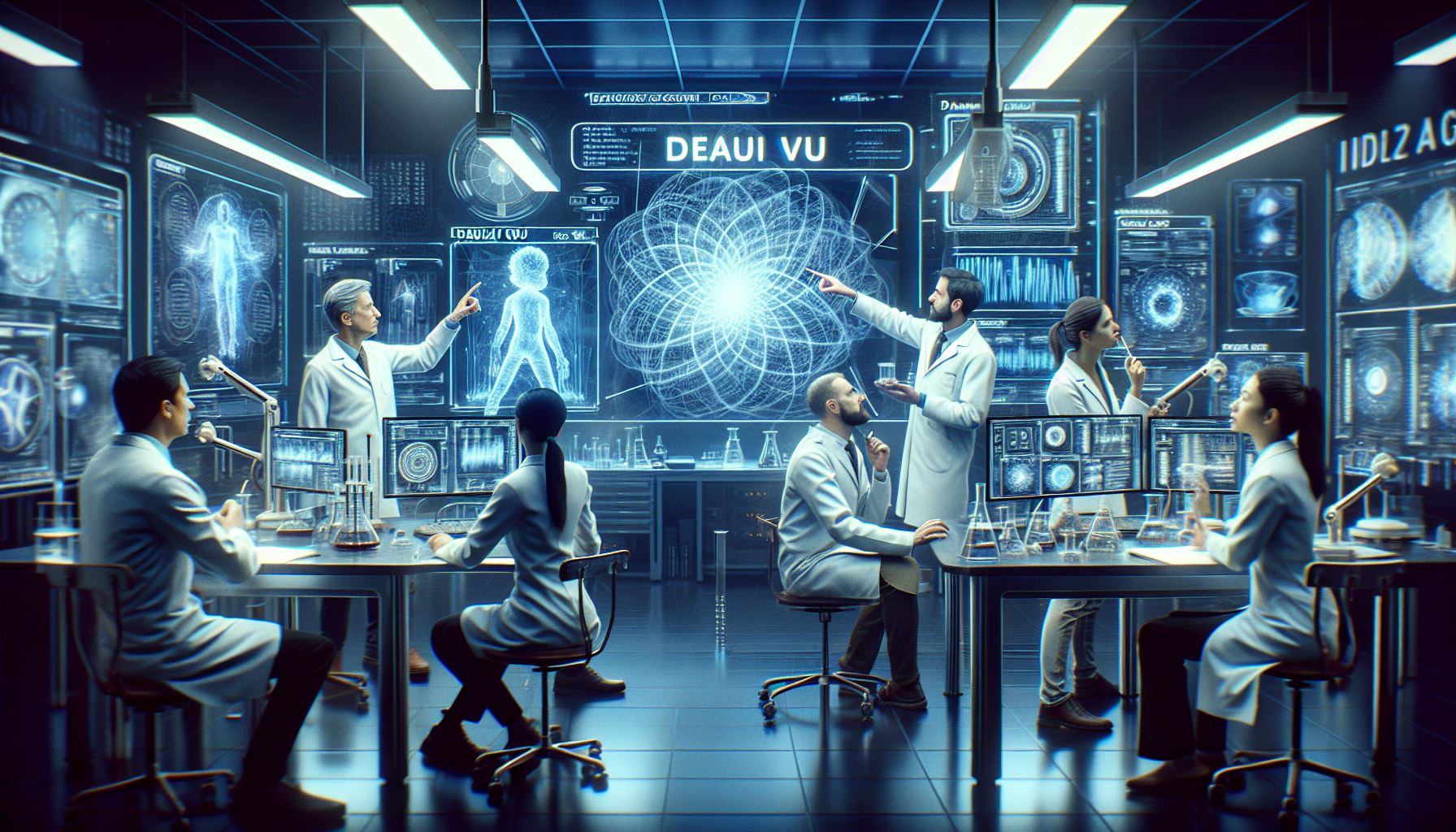Advertisements
Have you ever had the feeling that you are experiencing something that has already happened before? This phenomenon, known as déjà vu, is something that intrigues and surprises many people around the world. But what is the science behind this unique and mysterious sensation? In this article, we will explore the mechanisms behind déjà vu and unravel the mysteries surrounding this peculiar experience.
Advertisements
Déjà vu is described as the feeling of familiarity in relation to a situation or environment that has never been experienced before. Many theories have been proposed over the years to explain this phenomenon, from memory-related issues to more esoteric ideas. However, science has increasingly advanced in understanding déjà vu, bringing new perspectives and insights into the subject.
In this article, we’ll delve into the world of déjà vu and explore the different theories and studies that seek to explain this intriguing sensation. Join us as we unravel the mysteries behind déjà vu and discover what science has to say about this unique and surprising experience.
Unraveling the Mystery of Déjà Vu
We often experience that unique and surprising sensation of having experienced something before, even if it is the first time we are experiencing that situation. This sensation is known as Déjà Vu and has intrigued humanity for centuries. But after all, what is the science behind this phenomenon?
Advertisements
What is Déjà Vu?
Déjà vu is a subjective experience in which a person feels that something that is happening in the present has already been experienced in the past. It can be a feeling of familiarity with a place, a person or a situation, even if there is no concrete memory of that event.
The Science Behind Déjà Vu
Scientists have yet to reach a consensus on the exact cause of déjà vu, but several theories have been proposed. One suggests that the brain may be experiencing a slight “short circuit” when processing information, causing an experience to be recorded as a memory before it has even been properly processed.
- Implicit Memory Theory: Some researchers believe that Déjà Vu occurs when information is misinterpreted as a memory when in fact it is just a new stimulus.
- Brain Dyssynchrony Theory: Other scholars suggest that Déjà Vu occurs when there is a temporary mismatch in communication between the hemispheres of the brain, leading to a feeling of mistaken familiarity.
- Brain Fatigue Theory: Some experts believe that Déjà Vu may be the result of brain fatigue, causing the brain to misinterpret an experience as a memory.
Understanding déjà vu can help us better understand the complex workings of the human brain and the ways in which it processes and stores information. While there is still much to be discovered about this phenomenon, one thing is certain: déjà vu will continue to intrigue and fascinate people for a long time to come.

Amidst the many theories and studies that seek to explain the phenomenon of déjà vu, it is fascinating to think about the possible practical applications of this knowledge. Better understanding how the brain processes and stores information can have important implications in areas such as psychology, neuroscience and even artificial intelligence. By unraveling the mysteries behind déjà vu, we can not only expand our understanding of the human mind, but also pave the way for new discoveries and scientific advances that can positively impact our daily lives and our understanding of the world around us.
As science advances and new discoveries are made, our understanding of déjà vu may become even clearer. The search for answers about this intriguing phenomenon not only allows us to unravel the mysteries of the human mind, but also challenges us to question and explore the limits of our knowledge. With continued interest in understanding the workings of the brain and its complexities, it is likely that new theories and studies will emerge, offering innovative insights and surprising revelations about déjà vu and other related phenomena. Thus, we remain curious and motivated to unravel the secrets behind this unique and enigmatic experience.
With the advancement of technology and the deepening of scientific research, new tools are emerging to help explore mental phenomena that are still poorly understood. One example of this is the use of neuroimaging techniques, such as electroencephalography (EEG), which allows the analysis of the brain's electrical activity in real time, providing a more detailed view of cognitive processes. These innovations have the potential to unravel mysteries such as time perception and memory, aspects that are crucial to understanding phenomena such as déjà vu. In addition, interdisciplinary collaboration between areas such as cognitive psychology, neuroscience, biotechnology and even artificial intelligence has proven to be essential for developing more accurate and sophisticated models of how the human mind works. The joint work between these disciplines offers new approaches to researching mental states, contributing to understanding not only déjà vu, but also how our memory is stored, processed and recalled. The future of cognitive science, therefore, opens up countless possibilities, with each new discovery being a key to deciphering the complex mysteries of human consciousness and behavior.
Conclusion
In short, Déjà Vu is an intriguing phenomenon that arouses curiosity and fascination in many people. The science behind this unique and surprising sensation is still not fully understood, but several theories have been proposed to explain it. From the idea of a “short circuit” in the brain to brain fatigue, researchers are trying to understand how Déjà Vu occurs and why it is so common.
Regardless of the definitive explanation, understanding déjà vu can provide us with valuable insights into the complex workings of the human brain. The ability to process and store information efficiently is fundamental to our perception of reality and interaction with the world around us. Therefore, studying phenomena like déjà vu helps us unravel the mysteries of the human mind and expand our knowledge of how the brain works.
Ultimately, Déjà Vu will continue to be a topic of interest and research for scientists and curious people alike, as we seek to unlock the secrets behind this unique sensation. With each advance in our understanding of the brain and mind, we come a little closer to deciphering the enigma of Déjà Vu and the many other wonders that the world of neuroscience has to offer.




